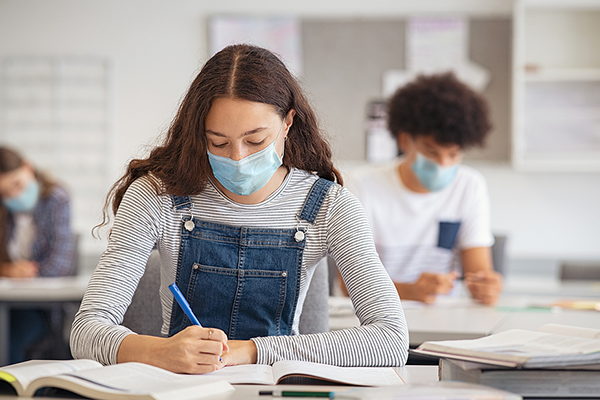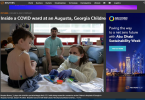How to Fight “Pandemic Precaution Fatigue” in Teens and Young Adults
After months of spending less time with the people we love, wearing masks, having events canceled and taking other precautions against COVID-19, we’re all a little tired.
It’s hard enough as adults to thoughtfully measure the preventive actions we’re having to take against all that we’re losing out on. For teens and young adults in the prime of life, it can be even more difficult.
If you’re struggling to get your kids to be responsible about protecting themselves and others, there are some steps you can take.
Why We’re Feeling Fatigued
A new phenomenon called “pandemic precaution fatigue” or just “caution fatigue” is exactly what it sounds like. We’re worn out from paying so much attention to all the rules we need to follow and all the precautions we need to take day to day.
While teens and adults are accustomed in life to following rules, when a new set of guidelines is established and those guidelines are restrictive, it’s not easy. Many teens and young adults naturally want to spend more time in close contact with friends and classmates.
In other words, the exact opposite of what health experts recommend to combat the spread of COVID-19.
5 Tips for Getting Teens & Young Adults to Take Precautions
Every person is unique, so what works with one teen may not work with another. That said, here are some general tips to help your teen or young adult adapt:
- Share the details about COVID-19. Often, a reluctance to take precautions is rooted in a lack of real understanding about why COVID-19 is a big deal, how many people it has affected and how it spreads.
- Discuss why daily precautions are necessary. Once you’ve talked about how the coronavirus spreads, point out how our “normal” activities contribute to its spread. Emphasize that eventually there will be a vaccine, but in the meantime, precautions like face coverings, social distancing and staying at home are our best defense.
- Model appropriate behavior. Setting a good example may be the most important tip. Your kids, even when they’re older, will be more likely to take responsible action if they see you doing the same.
- Encourage safe interactions with others. Just because we need to social distance doesn’t mean your teen can’t be social. Talk about using video calls and other tools to stay in touch with friends, as well as how you can more safely spend time outside the home with others.
- Turn their attention forward. We can all benefit from remembering that the precautions we’re taking—and the things we’re giving up—are temporary and can save lives. Eventually, things will return to a normal, even if it’s a “new normal,” and many of these precautions will no longer be necessary.




